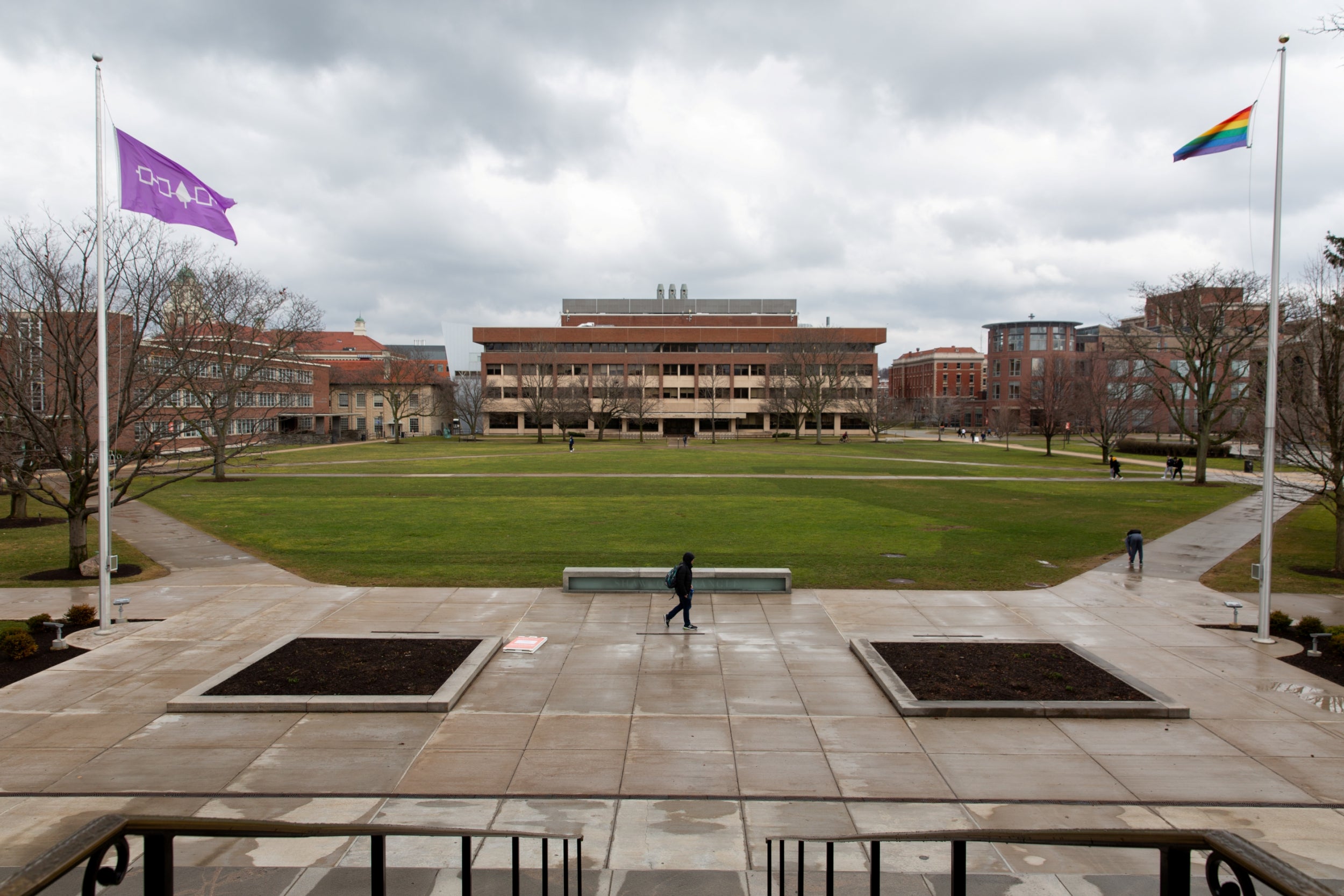LIFESTYLE FEATURES
begin quote from:
‘If anyone tells you a date they’re using a crystal ball’: When can we really expect coronavirus to end?
Boris Johnson has announced how the lockdown measures will be eased in the coming weeks, but when will coronavirus really be over? Sophie Gallagher asks the experts
The first case of coronavirus transmitted in the UK was reported on 31 January. There have since been tens of thousands of deaths across the nation.
In a bid to combat the continued rise in cases, Prime Minister Boris Johnson put the nation in lockdown on 23 March (and it was extended again on 16 April by Dominic Raab), which meant working from home where possible and not undertaking any non-essential travel. Meanwhile, those with underlying health conditions, people over the age of 70 and pregnant women were told that from 21 March they should self-isolate at home for a period of 12 weeks.
However, on Sunday 10 May, Mr Johnson delivered a speech to the nation in which he outlined a road map for how England’s lockdown restrictions would be relaxed in the coming weeks using a new Covid Alert System. The system will include five alert levels with the lowest, one, requiring the fewest measures. Over the period of the lockdown, Mr Johnson stated that the country has been in Level Four but that it could now begin to move in steps towards Level Three.
On Wednesday 13 May, some restrictions, such as people being permitted to take part in unlimited outdoor exercise and sunbathe in local parks, were eased. However, phase two saw the restrictions ease even further from 1 June, with the phased reopening of shops and primary schools, and socialising in groups of six in public and outdoor spaces.
The government also hopes to re-open at least some of the hospitality industry and other public places, at the earliest by July.
The prime minister stressed that the easing of restrictions in England will only take place under the condition that transmission rate for coronavirus remains low.
“It depends on all of us – the entire country – to follow the advice, to observe social distancing, and to keep that R down,” he said in reference to the R rate, which is a key measure of how much Covid-19 is spreading.
Meanwhile the UK’s chief scientific advisor, Sir Patrick Vallance, said “putting absolute timelines on things is not possible” and other reported ways of approaching the outbreak like simply allowing the population to develop "herd immunity", have been described as requiring a much longer lead time – more like a year.
So how long can we really expect the coronavirus outbreak to continue in the UK and what are the proposed exit strategies in order to return to normal life?
When will coronavirus be over?
“It is impossible to put a date on it,” Dr Simon Clarke, professor of cellular microbiology at the University of Reading tells The Independent. “If anyone tells you a date they are staring into a crystal ball. The reality is that it will be with us forever because it has spread now.”
Dr Clarke says it is particularly challenging because it can reside in people without showing any symptoms and then go on to be spread by that person. “There is no reason to say [the virus] won’t continue to do this in the future”.
Dr Jenna Macciochi, a lecturer in immunology at the University of Sussex agrees it is hard to estimate a date: “It’s a question we probably all want to know the answer to and I doubt anyone knows for sure as it depends on many factors. I’d say we don’t currently know.”
Robert Dingwall, professor of social sciences at Nottingham Trent University describes the situation as being “impossible to give any scientifically-justifiable timetable”.
Michael Head, senior research fellow in global health at Southampton University, says estimates are made particularly difficult because coronavirus is a novel virus. “The difficulty with any modelling or future predictions is this is an entirely new virus, and the scale of this pandemic is unprecedented in living memory.
"The extent of globalisation and international connectivity is such that the ‘end game’ is so difficult to predict with any certainty.” Although Head does say he hopes in the “next few months” cases can be limited and “reduced to much lower levels”.
“However, come the winter, there are significant concerns about a sharp increase in coronavirus cases. This could coincide with the start of flu season and is a time when hospitals and GPs are traditionally under even more pressure,” he adds.
Could a lockdown reduce the spread?
In other European countries such as Italy, authorities have implemented much stricter measures to combat the spread, placing everyone under lockdown and only allowing small numbers of people to leave the house in the case of emergencies or obtaining food and medicine.
Would such a measure work in the UK for shortening the lifespan of coronavirus? Dr Macciochi says curbing the virus in this way will depend on how well strategies are taken up by people.
“But even then once we put these actions into place, we have no idea how long for,” she says. “And if we let people go back to normal too quickly then it could backfire. If we did complete lockdown for a short period there is still a chance it wouldn’t be enough.”
Coronavirus turns New York into a ghost town
Show all 26
Could we get a vaccine for coronavirus?
The UK’s chief medical adviser Professor Chris Whitty has said “long term, clearly a vaccine is one way out of this and we all hope that will happen as quickly as possible”.
Dr Clarke agrees that the key to combating the coronavirus will be the development of a vaccine. “That is what is going to control things. We can develop ways of controlling symptoms too but they only treat, they don’t get rid of it.”
The first person to be given an experimental coronavirus vaccine in the USA happened last week after researchers were given permission to skip the usual animal testing phase.
If vaccines are given to enough of the population (more than 60 per cent) the country will develop what is known as ‘herd immunity’ meaning the virus cannot spread so easily in the future. This herd immunity can also be (controversially) achieved by just allowing the virus to spread widely and letting individual immune systems build up a response to the virus.
Professor Dingwall says: “Coronavirus will be endemic in human populations (like seasonal influenza) until there is a safe and effective vaccine, which can be used on a mass scale to squeeze it out.
“We have done this with smallpox and are close to doing it with polio. Good progress would have been made with measles if it hadn’t been for the recent anti-vax campaigns,” he adds.
But Dr Clarke warns this isn’t as simple as it sounds. “With vaccines you have to generate an immune response that is protective enough – any old immune response won’t do. It has to be able to protect against subsequent infections when that happens.
“Of course [the vaccine] also has to be safe and it has to be long lasting enough. It is pointless giving people immunity for a couple of months.”
He says there is then the additional problem of manufacturing the vaccine in sufficient quantities and quickly enough. “I remind people we’ve been trying to find a vaccine for HIV for the best part of 40 years,” he says.
Professor Macciochi and Mr Head estimate the vaccine could take anywhere between 12 and 18 months to enter the market.
“It could fail at any part during trial,” adds Dr Clarke.
Are there any other solutions?
Professor Macciochi says much of the next few weeks will involve “watching and waiting” the way other countries around the world handle the pandemic – to see how they respond and the outcomes of their strategies.
“I believe things are starting to get better in China and [we] can look to other viruses for clues, but it is spreading quicker than similar viruses so looking inevitable that it will be sticking around for a while,” she explains.
Mr Head says for the time being the government strategy needs to include greater testing of people in the UK: “[We need] improved diagnostics, particularly a widespread ability to test those who have already been infected.
"[It] would greatly help with the response efforts, and we hope to see these in the UK and other countries over the coming weeks,” he says.











No comments:
Post a Comment